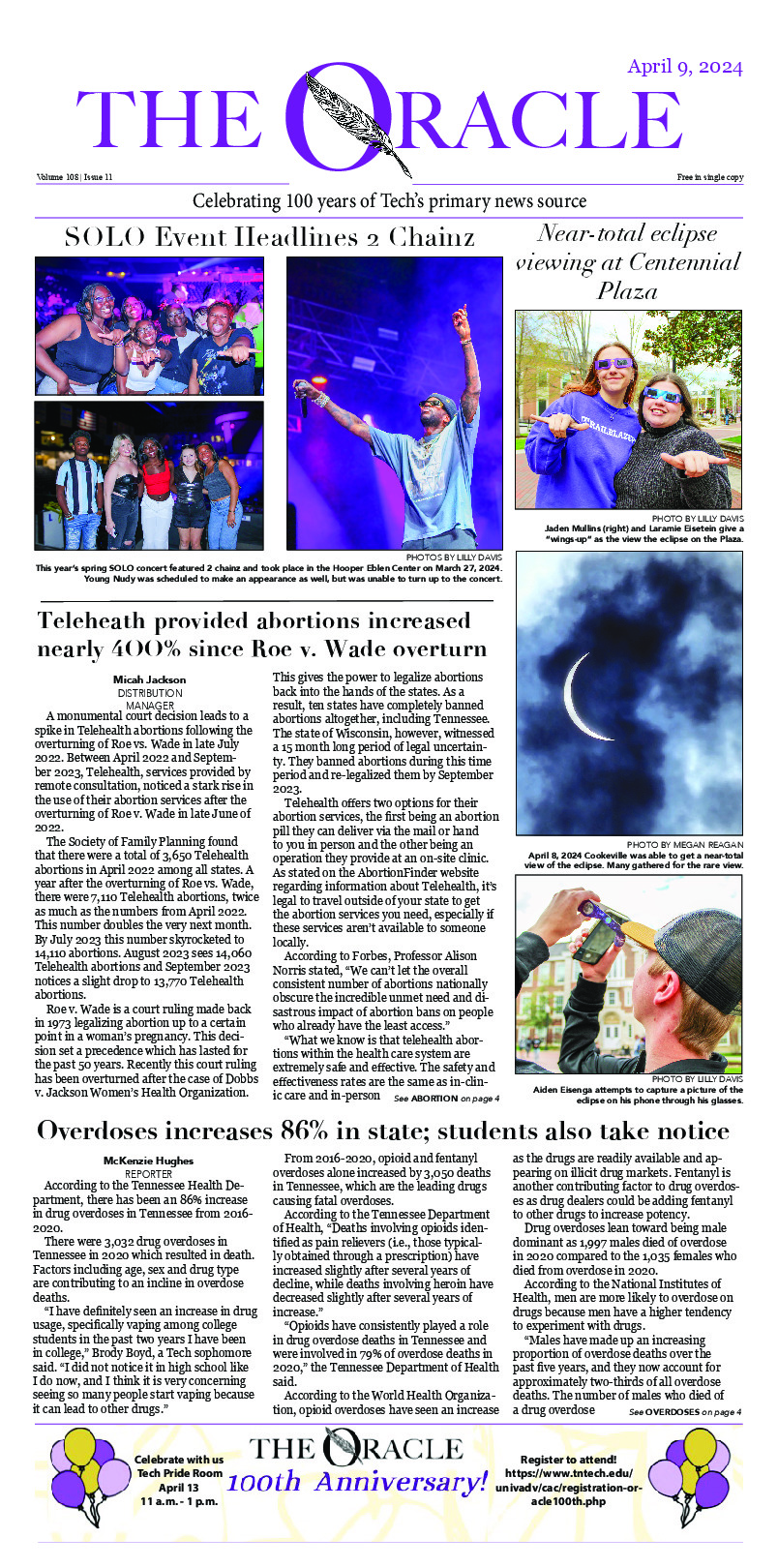Recitals take up a large portion of Tech’s calendar, but many students don’t understand everything they entail. For music majors, a recital is more than just a performance and takes a different kind of preparation compared to an exam.
“This is a performing art-music is a form of communication. So students have to learn how to communicate and the way to do that is to put yourself out there on your instrument,” piano professor Dr. Catherine Godes said. “It’s hard. Performance is a big part of the degrees.”
Both music majors, performance and education, must put on a senior recital. Music performance majors also are required to perform a junior recital. The recitals are graded, but faculty work directly with students and give private lessons to allow for maximum preparation.
Students usually book their recital dates in advance during the first week of the fall semester based on priority and choose their music a year in advance.
“A recital takes a much longer time to prepare for. It took me a semester and a half to prepare,” senior music education major Katheryn Hoffecker said while comparing a recital to an exam. “It is a completely different beast, therefore it tests you different in so many other ways.”
Recital lengths depend on the number of pieces a student performs or if they are performing a joint recital with another student. Two pieces are generally about 15 minutes and four pieces can be about 45 minutes to perform.
Practicing for hours at a time is normal in the Bryan Fine Arts building. Students must memorize their music, perfect their technique and know the subtleties of their instrument. It is common for a music major to practice at least four hours a day on top of attending classes and rehearsals, according to Hoffecker.
Anxiety is another aspect of a recital a student must conquer.
“Performance anxiety is no joke,” Hoffecker said.
Each studio addresses performance anxiety differently but all performers experience anxiety regardless of their experience level.
“I know Dr. Chang, our violinist, tells his students to run up and down the stairs five times to get the blood flowing. Everybody has their own thing,” Godes said.
Other ways performers cope with anxiety includes eating bananas, not drinking caffeine, not practicing the day of the recital and keeping their fingers or arms warm and ready to play.
The music department conducts convocations during dead hour about twice a month allowing students to perform one-piece recitals for their colleagues and familiarize themselves with the recital experience.
Most faculty give a full solo recital once a year as well as recitals with ensembles every semester.
The Wattenbarger Auditorium in the Byran Fine Arts building is the main location for recitals. The events calendar gives details about who is performing and when. (ebsta.com)
“Giving a recital is rewarding, but it is hard work. If you attend a student or faculty recital, know that a lot of time was put into making the performance as perfect as possible,” Hoffecker said.


